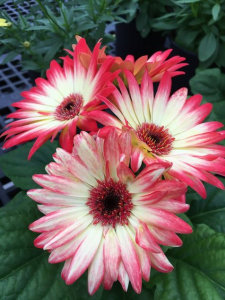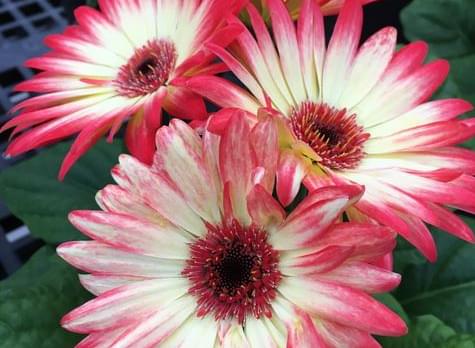With the start of June we now welcome summer and our gardens are now in full swing. With summer we have to keep our gardens watered regularly and keep an eye out for insect and disease problems. Below are gardening tips to help your garden grow through the month of June.
Lawn
- Mowing at the correct height and frequency is one of the most important things you can do keep your lawn thick and weed free. Different turf types have different ideal mowing heights. Centipede, bermuda and zoysia lawns are best kept at 1″ to 1 1/2″. St. Augustine lawns need to mowed at 3″ to 4″ high.
- Be sure to check mower blades and sharpen if dull. Dull mowing blades will shred grass rather than cut it. Grass that has been shredded can leave a brown or grayish cast over the lawn. Shredding or ripping of grass blades instead of clean cuts can leave the lawn more susceptible to diseases. Blades should be sharpened every month or two.
- Seeds of centipede, bermuda, and certain varieties of zoysia can be sown in June but need frequent watering to germinate. Do not allow grass seed to dry out after being sown. St. Augustine grass cannot be established by seed.
Trees, Shrubs and Flowers
- Mid- to late June is an excellent time to take softwood cuttings of shrubs to start new plants. Some shrubs propagated in this manner are spirea, boxwood and azalea.
- Flower containers should be watered daily during summer. Allow water to drain all the way through the pot. Make sure drainage holes are open in the bottom of the pot to avoid water logging that can lead to root rot.
- Remove dead flowers from bedding plants to get more flowering. Removing the dead flowers or “deadheading” prevents the plants from not flowering and going to seed and before summer is over.
Fruit, Vegetables and Herbs
- Plant sweet potato slips in June for fall harvest.
- Most vegetables require 1″ of water per week. Avoid wetting the foliage of plants when watering as this increases disease problems. Use soaker hoses or drip tape to apply water at ground level.
- Remember to fertilize your tomatoes as they are growing. Fertilize with 2-3 tablespoons per plant after plant has started to set fruit and 4-6 weeks thereafter throughout the growing season. Use 8-8-8 and 10-10-10. Keep fertilizer 4-6″ from the plant’s stem to avoid fertilizer burn.
- Scarecrow not scaring away birds or squirrels from your garden? Instead, try tying pieces of colored cloth or tin pans to loose strings so the wind can blow them and clash them together. Random motion is the key to alarming the birds and squirrels away from the garden.
___________
Jessica Strickland is an Agriculture Extension Agent, specializing in horticulture for North Carolina Cooperative Extension in Wayne County.



